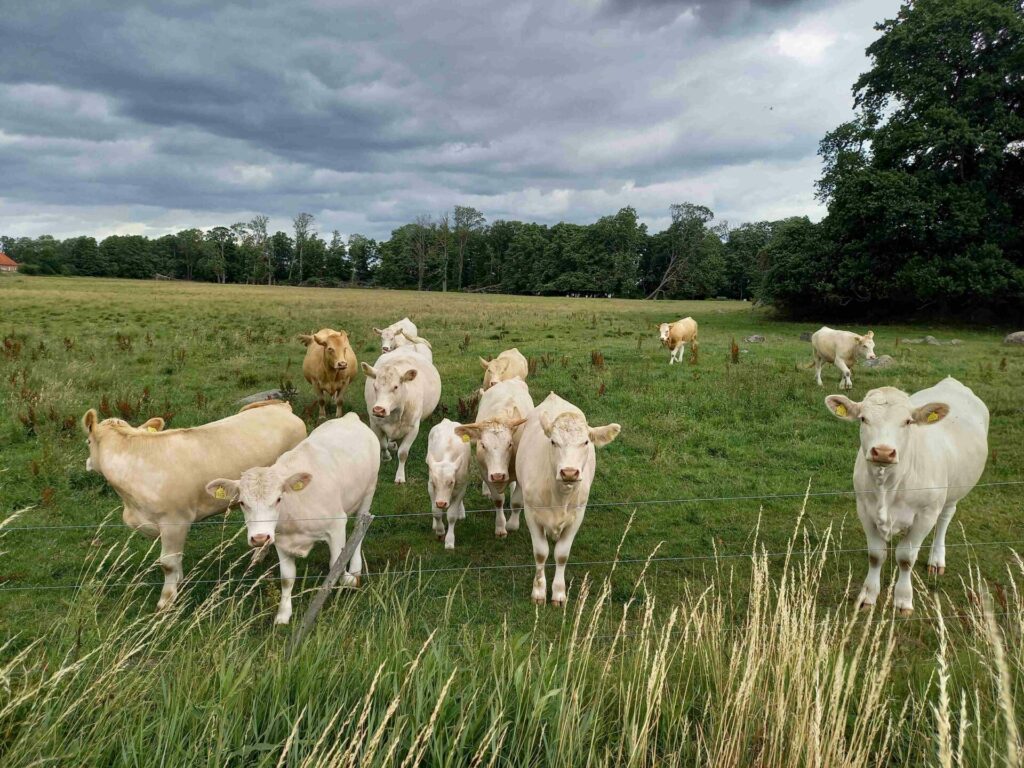The dialogue on the future of agriculture in Europe was launched on Thursday amid farmer protests in several EU member states and uncertainty about the agenda of the dialogue.
The first meeting in plenary format was opened by European Commission President Ursula von der Leyen who had announced the strategic dialogue in her 2023 state of union speech last September. The aim of this new forum is to shape a shared vision for the future of the EU's farming and food system. The ideas are expected to influence future legislative proposals.
“The time is ripe to forge a new consensus on food and farming among farmers, rural communities and all other actors on the EU agri-food chain,” von der Leyen said at her key note speech at the launch of the dialogue. “EU farmers and food industry provide our citizens with healthy and high-quality food, and make a central contribution to our economy, particularly in rural areas.”
“They are also making a tremendous effort to contribute to our collective green and digital transitions. But at the same time, they are confronted with a wide range of challenges, ranging from climate change, to inflation, to volatile market impacts. With this Strategic Dialogue, we are creating a forum to deliver a clear vision for the future, to the benefit of all.”
In the months leading up to the launch there was some uncertainty about how the participants in the dialogue would be selected and what topics they would discuss. At the end, 27 participants received a personal invitation letter from the Commission president. The choice was political and reflects the diversity of stakeholders.
The number was limited to allow focused and lively interaction, the Commission explained in a Q&A on the strategic dialogue. The list of participants has not been published. The forum may also consult other groups that were not invited.
It brings together key stakeholders from across the whole agri-food chain, including farmers, co-operatives, agri-food businesses, rural communities, NGOs, civil society representatives, financial institutions and academia. Stakeholders who are not directly represented will be invited to submit their views and input via a dedicated “have your say” portal.
The chair of the dialogue will play a crucial role. Professor Peter Strohschneider, a German linguist and historian, was appointed to chair the dialogue because of his experience in managing challenging processes involving stakeholders with different interests. He was chair of a similar strategic dialogue in Germany, the “Commission for the Future of Agriculture” (ZKL), which published its report in 2021.
The ZKL was tasked with making a proposal for an ecologically, economically and socially sustainable agriculture and food system. The recommendations in the report have apparently not been implemented yet but have been brought to the fore again in Germany because of the recent protests by farmers.
The EU strategic dialogue aims to cover all policies around agriculture and food production, strengthen the understanding of current and expected challenges, and find common ground, the Commission says.
Adventurous journey
People close to the dialogue described it as an “adventurous journey” during which the tension between economic and environmental sustainability in agriculture will have to be reconciled. The dialogue has been described as open but a better description would be open-ended. Not much will be disclosed during the process because of the need of confidentiality to preserve trust between the participants.
In practice, a number of working groups will be organized to discuss specific problems or themes. The discussions will be summarized in brief papers based on provisional consensus. The final report is expected by September, after the European Elections in June. It will apparently be up for next Commission to consider the ideas in legislative proposals.
The issue of animal welfare is an important issue but was missing in the 2023 state of union speech and the preparations before the dialogue. The agenda was supposed to be set by the participants in the dialogue who could select the topics they wanted to discuss. The invitation letter lists four pertinent issues that will be addressed in the dialogue but does not exclude other issues.
- How can we give our farmers, and the rural communities they live in, a better perspective, including a fair standard of living?
- How can we support agriculture within the boundaries of our planet and its ecosystem?
- How can we make better use of the immense opportunities offered by knowledge and technological innovation?
- How can we promote a bright and thriving future for Europe's food system in a competitive world?
For the first time, animal welfare was briefly mentioned by von der Leyen when she addressed the participants at the kick-off meeting yesterday: “Many of you stand up for animal welfare and biodiversity.”
A person close to the dialogue said that the participants have received a mandate based on the four questions and that animal welfare will be discussed under the second question.
“We trust the strategic dialogue will be an opportunity to depolarize the debate around agriculture,” Reineke Hameleers, CEO of Eurogroup for Animals, told The Brussels Times. “The dialogue should emphasize the win-win in improving animal welfare in agriculture.”
“The billions of animals in the EU used for human consumption are still poorly protected by the outdated animal welfare legislation. The dialogue should assist farmers in transitioning to state-of-the-art welfare farming practices supported by updated animal welfare legislation in line with citizens’ demands.”
The Commission’s proposals last year to revise EU’s animal welfare legislation fell short of the more ambitious revision that it had committed to propose. The Commission President said that she now hopes that the participants in the dialogue “will build the trust to appreciate each other's perspectives and to find common solutions for the future of agriculture in Europe”.
M. Apelblat
The Brussels Times

